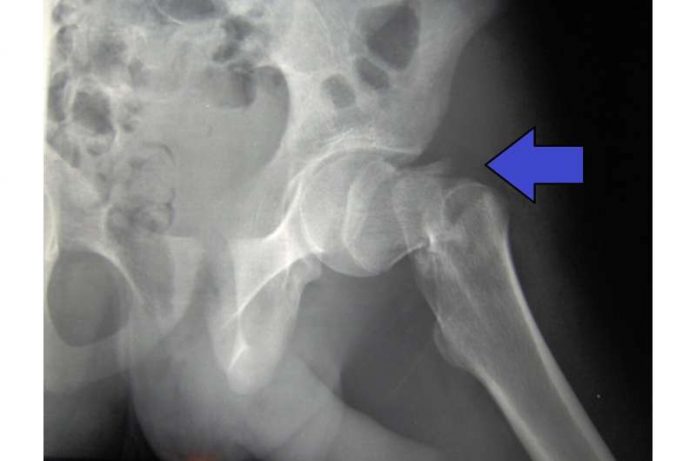
In a new study from Neuroscience Research Australia, researchers found survival after surgery to repair hip fracture has improved, but not for patients who were hospitalized without undergoing surgery.
They analyzed data from emergency admissions of people with hip fracture as primary diagnosis with an external cause of low fall, linked with NSW Registry of Births, Deaths and Marriages mortality data.
The team found a total of 40,744 people were admitted to hospital with hip fractures during 2011–2018, 3,450 of whom (8.5%) did not undergo surgery.
A total of 3,403 people (8.4%) died within 30 days of admission to hospital; 9,644 of the 36,088 people (26.7%) for whom 12-month follow-up data were available had died within 12 months.
The proportion of patients who did not undergo surgery declined from 9.1% in 2011 to 8.0% in 2018.
After adjusting for age, sex and comorbidity, 30-day mortality declined from 8.4% in 2011 to 8.1% in 2018.
Among patients who underwent surgery, mortality declined from 6.9% in 2011 to 6.4% in 2018, but the rate for those who did not undergo surgery did not decline much
The team says the number of older people with hip fractures is expected to increase as the population ages, particularly among the oldest old (aged 80 years or more) and those with conditions such as dementia, increasing the complexity and costs of care.
Mortality linked to hip fracture is higher for men, people of more advanced age, and those with greater comorbidity.
A recent study published in the Journal of the American Geriatrics Society found that hip fractures in older adults can be very dangerous and often cause chronic illness, death, and high health care costs.
They estimated that 18 to 33% of all older adults who have suffered hip fractures will die within a year.
The rate is even higher among people who have dementia or who live in a nursing home.
Previous research had shown that as many as 50% of older adults face difficulties following a hip fracture, and may be unable to bathe, feed, or dress themselves (called “activities of daily living,” or ADLs).
They may not be able to get around for months to even years after their fracture.
This physical decline can lessen their quality of life, and some 20% of older adults go on to long-term care facilities after having a hip fracture.
Studies conducted on older adults who have had hip fractures suggest that the strongest indication that a person will experience a decline after a hip fracture is being disabled before the fracture occurs.
What’s more, hip fractures affect patients’ caregivers and can cause financial burdens when the individual requires more care.
In this study, the team examined how older adults fare after suffering from hip fractures.
They examined data from 368 patients older than 65 who were having surgery to repair hip fractures during 2015.
The people had surgery for hip fractures at Yale-New Haven Hospital.
By three months after their hip fracture, 21 patients had died. By six months, five more patients had died.
Of the participants, 11% had dementia, 18% had depression, 19% had chronic kidney disease, and 21% had congestive heart failure.
The researchers found that cognitive impairment can be a major predictor of functional problems and disability following hip fracture.
They also found that the proportion of people who had difficulty performing their daily tasks three months after surgery did not improve after six months.
However, the proportion of people who were disabled and unable to get around was greater at three months than at six months.
This suggests that some older adults could recover following hip fractures, and some were able to climb stairs and walk two blocks.
The findings show that older adults who were independent before their hip fractures, but who had a cognitive impairment, experienced poorer outcomes after their hip surgery.
The team suggests that all older adults be screened for these conditions when they’re admitted to the hospital for hip fracture treatment and be screened throughout their hospitalization.
If you care about hip fracture risk, please read studies about pain medication that may increase your hip fracture risk, and why cholesterol-lowering drugs can cause muscle pain.
For more information about pain management, please see recent studies about new method to relieve back pain, and results showing what you need to know about headache pain.
The study is published in the Medical Journal of Australia and was conducted by Dr. Lara Harvey et al.
Copyright © 2022 Knowridge Science Report. All rights reserved.



